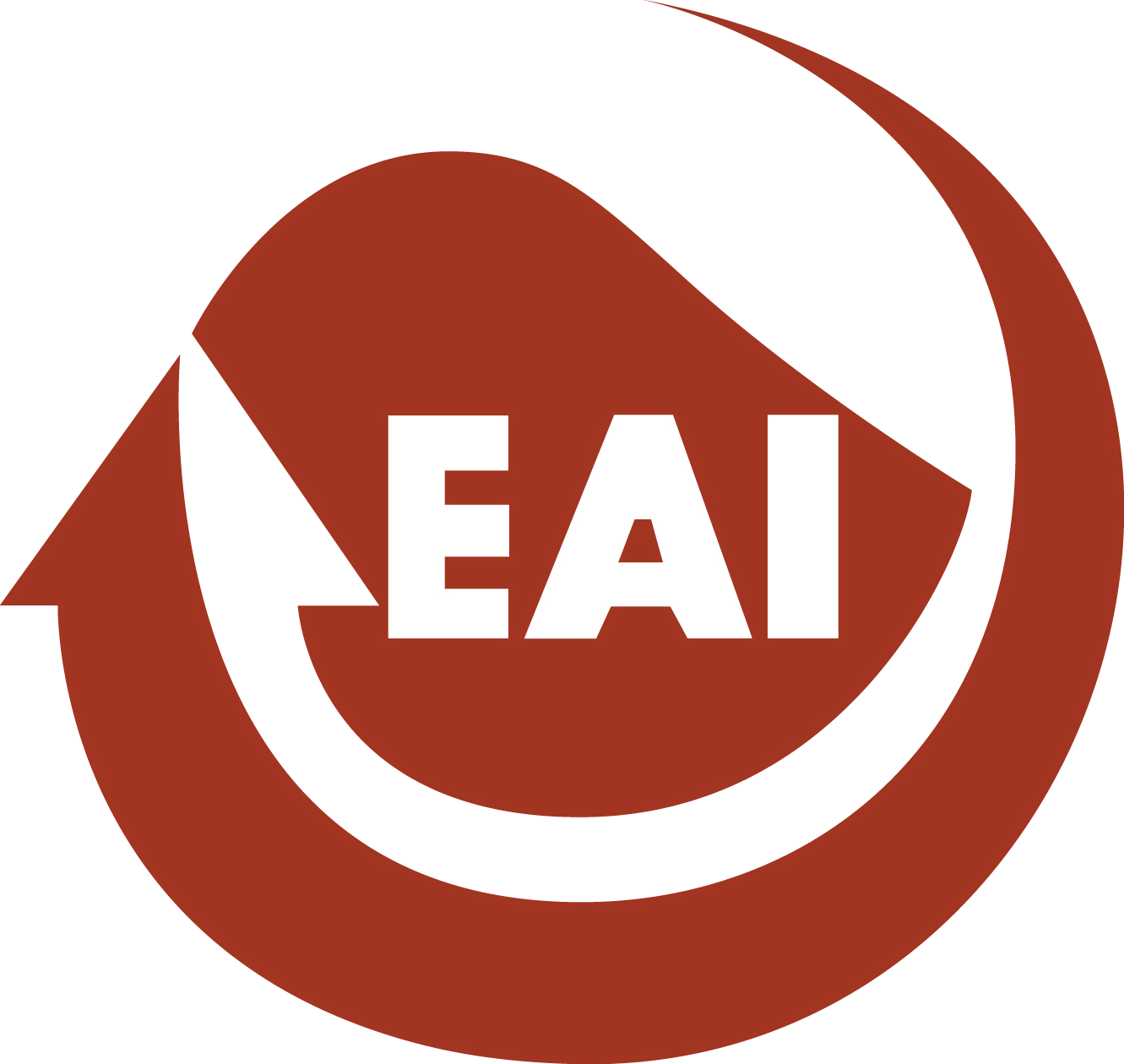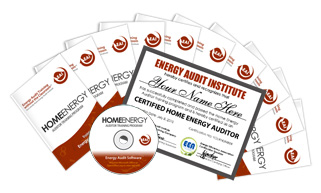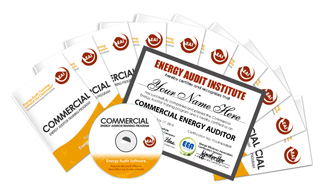RESIDENTIAL ENERGY AUDITS
The United States is currently the largest single consumer of energy. That’s Right! The result is that the average homeowner now spends about $2,200 per year on energy. Continuous heating and air conditioning consumption account for half of residential energy costs. With this consumption comes a tremendous amount of wasted energy. Our wasteful use of energy contributes to air pollution problems such as low-level ozone, smog, and global warming. The average family’s carbon footprint is over 11,200 pounds of pollutants, which go directly into the atmosphere each year.
The most direct and inexpensive route for homeowners to take to reduce wasted energy is to have a Residential Energy Audit. The primary purpose of a residential energy audit is to evaluate the homes energy consumption and make recommendations to eliminate wasted energy and lower monthly energy costs. The following diagram shows areas in the home that an energy audit evaluates:
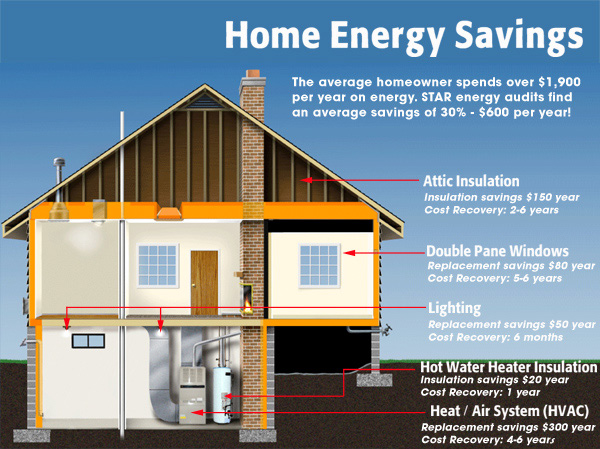
Increasingly in the last year, residential energy audits have exploded as the demand to lower rising residential energy costs and move towards a sustainable future have made residential energy audits greatly important. In addition, there is now a very large number of energy tax credits from cities and the federal government which are enabling homeowners to affordably update their homes and reduce their monthly energy costs.
Homeowners Need Help To Reduce Wasted Energy
The majority of people are interested in increasing their home, condo, townhouse, or apartment’s energy efficiency, but lack understanding of how energy works and aren’t entirely clear on which home improvement projects yield the largest energy-saving benefits. Here is some of the critical energy efficiency information you will be able to help them discover:
The average home owners energy usage is from attempting to heat leaking homes. Their combined unused electronics left plugged in account for $4 Billion a year in wasted energy. Here is a closer look at where the average residence is using energy every month
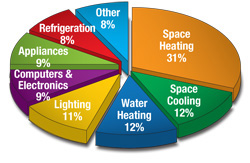
Residential Energy Audits Help Reduce Wasted Energy
When you get an energy audit in your home, you are instantly made aware of areas in your home that are wasting energy and provided energy savings alternatives to help you save money. Here is a short list of how a residential energy audit can help you.
» Learn How To Read Energy Bills – You can finally understand what your are being charged for and follow your energy savings as you start living more energy efficiently.
» Understand Indoor & Outdoor Lighting – You get the informatio you need to calculate bulb wattage and understand the costs and benefits associated with changing out your old light bulbs for the new “curly” energy efficient light bulbs.
» Discover Vampire Power – You will learn how your home electronics & major appliances are drawing power even when they are “turned off” and how much that adds up on your energy bills every month
» Easy Water Conservation – You will quickly realize the benefits of adding “Low Flow” shower heads, accurately setting your hot water heater temperature and lots more.
» Heating & Cooling System Savings – Understand how much energy your current HVAC system is using and how much money a new system will save you – including how long it takes to pay off that investment.
Residential Energy Audit Training
In an effort to help homeowners reduce areas in their homes that are wasting energy, EAI created a Residential Energy Audit Training Progam that finds an average savings of 30% on homeowners energy bills. The training focuses on lighting changes, thermostat modification, water usage, and other common energy wasting areas of the home. The reason – these are the easiest areas for homeowners to upgrade and provide the fastest return on their energy efficiency dollars. In addition, there are rebates and tax incentives for doing these types of upgrades which is where the homeowner will focus.
The EAI Residential Energy audit training program includes the spreadsheets necessary to calculate energy savings plus a written report that details the energy savings to the homeowner. These energy savings are what they may realize when simple changes to electricity, water, and natural gas are completed. The accuracy of the energy estimates are greatly improved when the homeowner’s billing history is available showing the quantities of energy resources used each month.
If you are interested in getting started in Energy Auditing or just want to learn how to save energy in your own home, the EAI Residential Energy Audit Training Program is the perfect fit. The program will teach you how to identify the common energy wasting areas of a residence. You will also learn more in-depth energy conservation techniques to enable you to provide your clients with the maximum in energy savings insight.
SUPPORT
- Email: support@energyauditinstitute.com
- Phone: 512-212-4949 (9am-5pm Eastern)
- Snail Mail: 6 Harper St.
West Orange, New Jersey 07052
